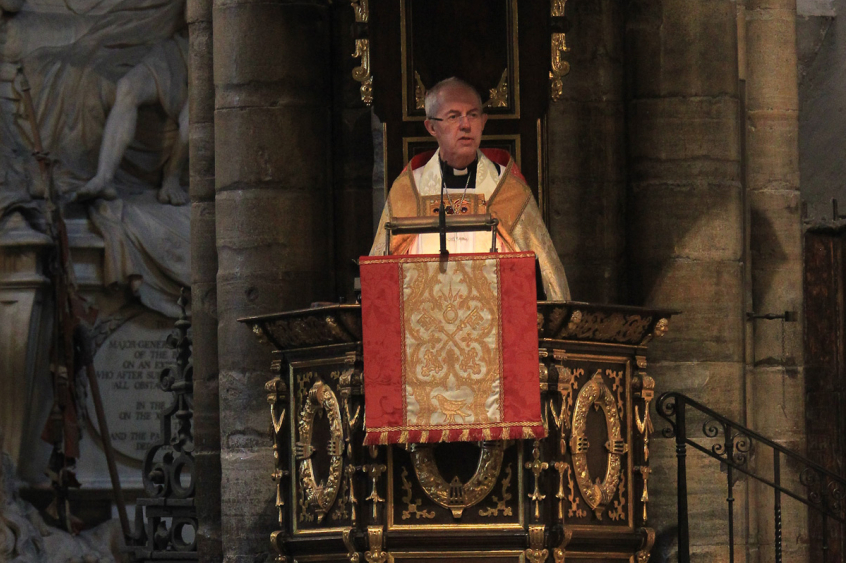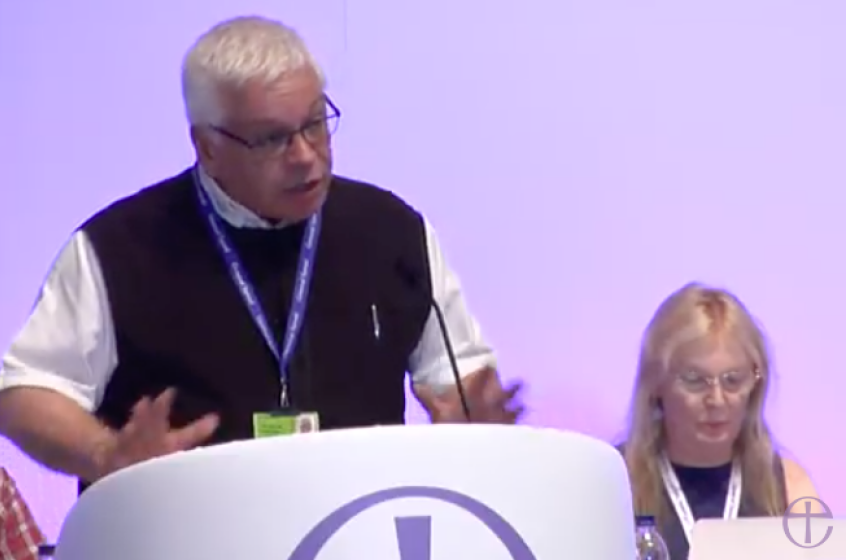Boys as young as five should be allowed to wear tiaras and high heels if they want to, the Church of England is telling schools in it's first advice on transphobic bullying.
Children should not be limited by their gender when growing up, the guidance published on Monday says, so girls should be able to wear a fireman's helmet and a tool belt when dressing up free from criticism, it adds.
The document issues official advice for the CofE's 4,700 schools and updates previous guidance on homophobic bullying to include biphobic and transphobic abuse.
'Children should be at liberty to explore the possibilities of who they might be without judgment or derision,' it says.
'Children should be afforded freedom from the expectation of permanence. They are in a "trying on" stage of life, and not yet adult and so no labels need to be fixed.'
To accommodate trans pupils schools should avoid 'an inflexible uniform policy that creates a particular difficulty for trans pupils', make changes to toilet facilities and offer support to allow children to be referred to as 'he' or 'she' as they wish, the document says.
Teachers in Church schools should also 'avoid labels and assumptions which deem children's behaviour irregular, abnormal or problematic just because it does not conform to gender stereotypes or today's play preferences', it adds.

The Archbishop of Canterbury said the document will help schools offer the 'Christian message of love, joy and celebration of our humanity without exception or exclusion'.
He said: 'All bullying, including homophobic, biphobic and transphobic bullying causes profound damage, leading to higher levels of mental health disorders, self-harm, depression and suicide.
'Central to Christian theology is the truth that every single one of us is made in the image of God. Every one of us is loved unconditionally by God.'
The document acknowledges Christian parents may be strongly divided on this issue and admits 'there may be tension on this subject in some school communities'.
But it says: 'This does not mean that issues and questions of sexuality, gender and gender identity should be passed over. Rather, schools should ensure they provide an inclusive curriculum that addresses sexuality, gender, gender identity and LGBT issues in age appropriate ways. Sensitively addressing LGBT issues will help to create a culture of respect towards LGBT pupils and will actively contribute to the prevention of HBT [homophobic, biphobic, transphobic] bullying. No matter what the views of school community members, pupils must be protected and bullying must be challenged.'
It adds: 'However, there needs to be a faithful and loving commitment to remain in relationship with the other and honour the dignity of their humanity without "back turning", dismissing the other person, or claiming superiority.'

The document will likely frustrate conservatives who see the tone adopted by the CofE shifting towards being more accepting of LGBT relationships.
Last week one of the Archbishop of Canterbury's advisers stepped down citing 'heretical teaching' within the Church and warned other evangelicals would follow suit.
But the guidance was praised by charities and LGBT organisations and a spokesman for Stonewall said: 'Our research shows that nearly half of lesbian, gay, bi and trans pupils are bullied for being LGBT at school: a situation that desperately needs to change.
'We would like to congratulate the Church for sending a clear signal that homophobic, biphobic and transphobic bullying must never be tolerated,' he told the Telegraph.













